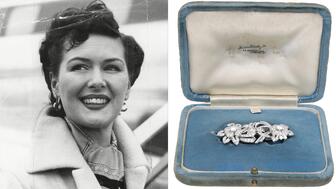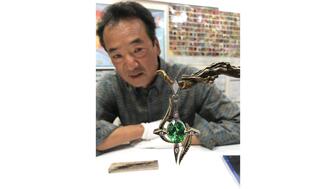Consumers were somewhat less worried about the future, though concerns about rising prices and politics remained.
South Dakota, Online Sales Tax and the Supreme Court
Last week, South Dakota’s highest court shot down Senate Bill 106. Here’s why it matters in the ongoing fight over internet tax.

Unless you’re one of the 800,000-plus residents of South Dakota, it’s unlikely you’ve heard much about Senate Bill 106.
Introduced in the state legislature by a bipartisan group of seven senators and eight representatives last year, S.B. 106 mandates that companies that make more than $100,000 in sales or have more than 200 transactions per calendar year in South Dakota remit sales tax, whether they have a physical presence in the state or not.
In introducing the bill, legislators argued that, first, the state needs the revenue it’s missing from online sales and, second, that the current law of the land, so to speak--Quill Corp. v. North Dakota--needs to be re-evaluated.
Quill is the U.S. Supreme Court ruling from 1992 that prevents states from collecting sales tax from sellers with no physical presence in the state; the overarching argument of internet tax proponents everywhere is that this 25-year-old law is now wildly outdated given how consumers shop today.
S.B. 106 passed both houses with little opposition and South Dakota’s Republican governor, Dennis Daugaard, signed it into law in March 2016.
It wasn’t long after the bill’s passage that three online retailers, Overstock.com Inc., WayFair Inc. and NewEgg Inc., pushed back and the case wound its way through South Dakota’s legal system, landing with the state Supreme Court in short order.
Salt Lake City-based Overstock.com sells a variety of merchandise, including fine jewelry, ranking among the $100 Million Supersellers in the 2016 State of the Majors report and, spoiler alert, in the soon-to-be-published 2017 edition as well.
WayFair, meanwhile, is a Boston-based online seller of furniture and home décor, and City of Industry, California-headquartered NewEgg is an electronics retailer.
In a ruling issued last Wednesday authored by Chief Justice David Gilbertson, the court sided with the e-tailers, stating that: “However persuasive the state’s arguments on the merits of revisiting the issue, Quill has not been overruled. Quill remains the controlling precedent on the issue of Commerce Clause limitations on interstate collection of sales and use taxes.”
Despite the court’s siding with the internet sellers, Chris Fetzer of Haake Fetzer, the firm that lobbies for Jewelers of America on behalf of the industry in Washington, said that the authors of the bill do not view the ruling as a failure.
It is, in fact, exactly what they wanted.
“It was fully expected that it (S.B. 106) would be challenged as illegal. This law was written to be challenged within
What has compelled them is a recent statement from U.S. Supreme Court Justice Anthony Kennedy in the DMA vs. Brohl case, which reads in part: “[T]he internet has caused far-reaching systemic and structural changes in the economy” so that “a business may be present in a state in a meaningful way without that presence being physical in the traditional sense of the word.”
He said that it is “unwise [for the U.S. Supreme Court] to delay any longer a reconsideration of the court’s holding in Quill.”
I reached out to Overstock.com, the lone jewelry retailer out of the three, for comment on the ruling and Kennedy’s comments late Monday afternoon.
The company was not able to respond by press time, but board Chairman Jonathan Johnson told Bloomberg that proponents of online sales tax are putting too much emphasis on that statement from Kennedy and have no assurances that the U.S. Supreme Court will take up the case or, if it does, rule in their favor and overturn Quill.
I think the statement from Justice Kennedy is pretty clear, but Johnson is right about one thing: There is no guarantee that the Supreme Court will decide to hear the case, though the chances increase if more states get involved.
Fetzer said typically, what most attracts the Supreme Court to take up a case is a “circuit split,” when multiple federal appeals courts have ruled in conflict on a given issue.
That is not at play in this instance, but what also can be attractive is when there’s an issue that multiple states are concerned about, which could happen here as more states could join South Dakota in petitioning the Supreme Court to review Quill.
Johnson also is right about another thing: There is no guarantee the court will rule to overturn Quill even if it does take up the case.
But, Fetzer points out, Kennedy’s comments indicate that he would be in favor of changing Quill and the court’s newest justice, Neil Gorsuch, also has expressed his support for the arguments that have long been put forth by internet sales tax proponents.
The court’s next term commences in October, so there’s a chance it could revisit the Quill decision between next month and June 2018.
We’ll keep you posted.
The Latest

Foerster is this year’s Stanley Schechter Award recipient.

Sponsorships and tickets to the annual fundraising event, set for May 31, are available now.

Every jeweler faces the same challenge: helping customers protect what they love. Here’s the solution designed for today’s jewelry business.

Chicago police and members of the U.S. Marshals Service tracked down the 35-year-old suspect earlier this week in St. Louis.


Owners of the Ekapa Mine reportedly filed for liquidation about a week after a mudslide trapped five workers who have yet to be found.

A 10-year alliance has also begun to address the shortage of bench jewelers through scholarships, enhanced programs, and updated equipment.

With refreshed branding, a new website, updated courses, and a pathway for growth, DCA is dedicated to supporting retail staff development.

The “Splendente” collection has evolved to feature hardstone letter pendants, including our Piece of the Week, the onyx “R.”

The jewelry collection belonged to “one of society's most glamorous and beautiful women of the mid-20th century,” said the auction house.

The update came as Anglo took its third write-down on the diamond miner and marketer, which lost more than $500 million in 2025.

Emmanuel Raheb discusses the rise of “GEO” and the importance of having well-written, quality content on your website.

Each received around four years for burglarizing a jewelry store and a coffee shop in Simi Valley, California, last May.

Catherine Aulick, a GIA graduate, received the ninth and final Gianmaria Buccellati Foundation Award for Excellence in Jewelry Design.

We asked a jewelry historian, designer, bridal director, and wedding expert what’s trending in engagement rings. Here’s what they said.

Experts from India weigh in the politics, policies, and market dynamics for diamantaires to monitor in 2026 and beyond.

Are arm bands poised to make a comeback? Has red-carpet jewelry become boring? Find out on the second episode of the “My Next Question” podcast.

The Swiss watchmaker is battling declining sales amid a rapid retail expansion, according to a Financial Times report.

The campaign celebrates Giustina Pavanello Rahaminov, the co-founder’s wife and matriarch of the family-owned brand, for her 88th birthday.

Rachel Bennett, a senior jeweler who has been with Borsheims since 2004, earned the award.

After the Supreme Court struck down the IEEPA tariffs, President Trump imposed a 10 percent tax on almost all imports via a different law.

The industry veteran, who was with The Edge Retail Academy for 14 years, joins her husband at the company he founded in 2022.

The vintage signed jewelry retailer chose Miami due to growing client demand in the city and the greater Latin American region.

Former Flight Club executive Jin Lee will bring his experience from the sneaker world to the pre-owned watch marketplace.

Sakamoto, who died in mid-January following a sudden illness, is remembered for his humility and his masterful, architectural designs.

The April event will feature a new VIP shopping day requiring a special ticket.

Bulgari chose the British-Albanian singer-songwriter for her powerful and enduring voice in contemporary culture, the jeweler said.




























